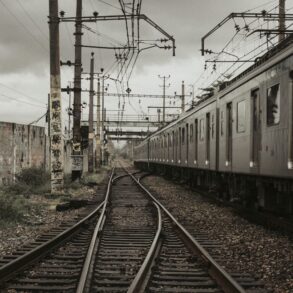
During the last two decades, arguments concerning who can claim belonging in Australia, and fears surrounding border security, have been at the forefront of Australian media and political debates. This is especially true when it comes to asylum seekers arriving by boat. The politicisation of asylum seekers arriving by boat has culminated in restrictive border policies, where even recognised refugees are denied entrance into Australia and are instead transferred to detention centres in Papua New Guinea and Nauru. On September 26th, Scott Morrison, the Australian minister for Immigration and Border Protection, signed an agreement with Cambodia to relocate Australian refugees currently being held on Nauru. This has caused an outrage among advocacy groups as well as the Cambodian people. The UN High Commissioner for Refugees, António Guterres, has called the agreement “… a worrying departure from international norms.”
Asylum seekers arriving by boat was a big issue during the Australian federal elections in 2013. The phrase “stop the boats” was a slogan used by both major parties. Only days after winning the election and becoming prime minister in September 2013, Tony Abbott launched “Operation Sovereign Borders” to keep his promise. Shrouded in secrecy, “Operation Sovereign Borders” is an on-going military-led operation that denies people arriving by boat without a visa to seek asylum in Australia (regardless of refugee status claims). In a graphic campaign “No Way. You will not make Australia home” published on the government website, the message to asylum seekers arriving by boat is clear: keep out.
Since September 2012, the Australian navy have intercepted all non-citizens without a visa who arrive in Australia by boat and have sent them to Nauru and Papua New Guinea for processing. As Nauru is a small isolated island with limited capacities to resettle refugees, an agreement signed with Nauru states that Australia is committed to help settle refuges to “a third safe country”. There are very few countries in the region that have signed the 1951 Refugee Convention. Therefore Cambodia has provided Australia with a third-country solution for resettlement of refugees that are currently being held in detention centres on Nauru. Scott Morrison, the minister for Immigration and Border Protection, has declared that the deal with Cambodia is: ”… about providing genuine resettlement in a third country which is Cambodia, a signatory to the Refugee Convention. It enables us to fulfil on the policy which says no-one will be resettled in Australia.”

In return for the relocation of refugees, the Australian government has agreed to increase Official Development Assistance with $40 million and a joint press release declares that: Australia ”… will bear the direct costs of the arrangement, including initial support to refugees, and relevant capacity building for Cambodia to ensure it has the appropriate resources to receive and integrate the refugees successfully.” There is no cap of the number of refugees that will be resettled. However, so far, Cambodian government has only agreed to an “… initial trial arrangement with a small group of refugees which will be followed by further resettlement in accordance with the Cambodia’s capacity.”
Whether it is suitable to relocate refugees to Cambodia has been questioned and an alliance consisting of UNICEF Australia, Save the Children, Plan International Australia, World Vision, Amnesty International, Refugee Council of Australia, International Detention Coalition and Children’s Rights International has condemned the deal as “… inappropriate, immoral and likely illegal”. In Cambodia approximately 4 million people live on less than $1.25 per day and the human rights situation in the country has alarmed the international community. Earlier this year the Australian government condemned Cambodia at a UN human rights hearing and emphasised that Cambodia should stop its military from killing street protesters; suppress political opposition and detaining people without trial. Furthermore, the country is ranked as one of the most corrupt countries in the world. According to Deputy Director of Human Rights Watch’s Asia Division, Phil Robertson: ”… it’s quite clear that Cambodia does not have any sort of appreciable services for refugees; they have a shoddy record of protection for refugees, despite having ratified the Refugee Convention. And there’s very little political commitment from the Cambodian government to ensure the ongoing support or safety of refugees in Cambodia.”

Source: Gettyimages
UN high commissioner António Guterres, is concerned about the precedent Australia is setting with the deal that outsources its responsibility to accept asylum seekers. The world is currently experiencing a refugee crisis, where the number of refugees, asylum-seekers and internally displaced people worldwide has exceeded 50 million for the first time since World War II. With 86 % of the worlds refugees currently hosted in developing countries, Guterres has stated that: “It’s crucial that countries do not shift their refugee responsibilities elsewhere. International responsibility sharing is the basis on which the whole global refugee system works.”
With this new deal it is clear that Australia is not in the mood of sharing responsibilities, instead they are taking outsourcing to a whole new level. By relocating refugees to Cambodia, Australia’s focus seems to be on deterring asylum seekers from arriving in Australia rather than working towards the protection of refugees in the Asia-pacific region.
KARL HELGESSON




